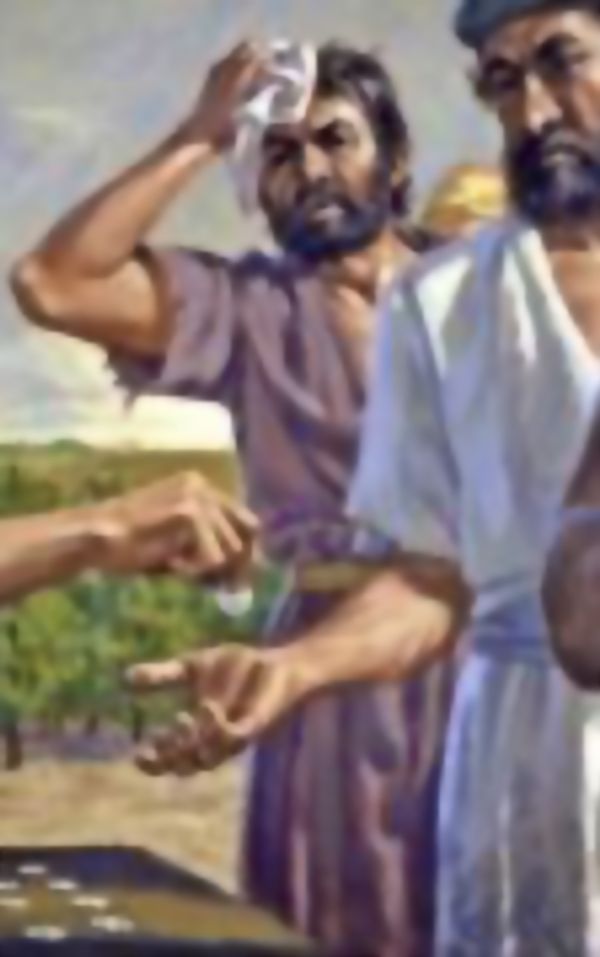(Unique Coin and smart working: Love)
(Mt 20:1-16)
In the atrium of the Temple in Jerusalem, the climbing vine of the portal was a symbol of the gifts that people were called to present to God: mutual acceptance, understanding, sharing... for the happiness of all.
Obviously, entering at the beginning of the day (that is, of our existence) into this logic of love is better, than entering at the last hour.
Being in communion with God, being in his Vineyard and having had the grace not to lose even a moment of life without his Presence, is a «bearing the burden» or vice versa a pleasure?
Believers of the first hour feel deeply offended, because they identify the "advantage" with what they have always denied themselves.
They think the "enjoy life" in the same way as the pagans! The work is indeed... «endured» [v.12: notice the verb!].
Well, God has no wage workers: only sons; no subordinate. And none of us is negligible for "inefficiency".
That of the models is a blocking effect; tied to insignificant comparisons.
Not in deep synchrony with oneself [vv.6-7].
The Gospel of Mt originated from Syro-Palestinian communities, which were beginning to experience pagans and sinners flocking in large numbers and becoming a numerical majority.
The attitude of the outsiders who showed up at the gates of the communities was much freer than that of the embarrassed veterans.
The new mentality, dissolved from constraints, provoked jealousy among those who were accustomed to scrutinizing the lives of others - almost out of religious duty.
After all, that of beginners and ‘mestizos’ who wanted to start a way of love was but a reflection of the superabundant fluidity of the divine Gifts.
‘Gratis’: communicated without mistrust or exclusions; not on the basis of previous merits, but free of charge and by virtue of need alone.
Therefore, today’s passage remains a strong Call.
The importance of work induces the Master not to send his factor (!) whom he unfortunately knows he cannot fully trust.
He himself goes out repeatedly and does not want dirigistic interference, in personally calling the workers.
Because He’s the Unique who understands: it’s never too late!
Teaching is precisely for community leaders, who often do not take on the burden of bothering themselves from home in the continuous search for everyone, and adapting themselves to people and events.
The Father wants a Family (Vineyard) that presents to the world the sweet and sugary fruit of the Feast - the only really important thing, non-negotiable principle.
Thus, to the always morbids top of the class the Lord continues to do a very educational "spite".
From now on they must discover that He does not discriminate on the basis of external profitable percentages, nor other negative mental states.
He “pays” everyone unreservedly and with a unique single «currency»: his Person. No automatic pilot is enabled to disturb our breathing.
The soul counts, not the curriculum [CV] or performance.
[Wednesday 20th wk. in O.T. August 20, 2025]












